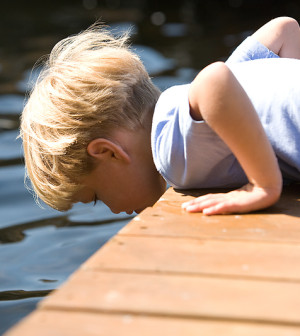- Stigma, Shame Hit Many Gay Men Affected by Mpox Outbreak
- Calories, Not Meal Timing, Key to Weight Loss: Study
- Dietary Changes May Beat Meds in Treating IBS
- Screen Pregnant Women for Syphilis, Ob-Gyn Group Advises
- Even With Weight Gain, Quitting Smoking in Pregnancy Still Best for Health
- A-Fib Is Strong Precursor to Heart Failure
- One Neurological Factor Keeps Black, Hispanic Patients From Alzheimer’s Clinical Trials
- Managing Blood Sugar After Stroke Could Be Key to Outcomes
- Dozens of COVID Virus Mutations Arose in Man With Longest Known Case
- Blood Test Might Someday Diagnose Early MS
No Rise of PTSD Seen in Children With Cancer


Children with cancer are no more likely than other children to develop post-traumatic stress disorder, new research finds.
And the children may even benefit in terms of developing empathy and emotional closeness, the researchers said.
“These results should be very reassuring to childhood cancer patients and their families,” said study first author Sean Phipps, chair of the department of psychology at St. Jude Children’s Research Hospital in Memphis, Tenn.
“A cancer diagnosis is a highly significant and challenging event, but this study highlights the impressive capacity of children to adjust to changes in their lives and in most cases do just fine or even thrive emotionally as a result,” Phipps said in a hospital news release.
For the study, published Jan. 21 in the Journal of Clinical Oncology, researchers surveyed 255 patients who were diagnosed with cancer between ages 8 and 17. They found that seven patients — or about 3 percent — had had PTSD or currently suffered from it. But it appeared to have been triggered by cancer in only two of those patients; the other five had suffered through traumas such as a hurricane and a drive-by shooting.
PTSD is an anxiety disorder that can develop after living through or seeing a terrifying event. People with PTSD may worry excessively or experience flashbacks, nightmares and outbursts.
When the researchers looked at groups of children without cancer, they found similar rates of PTSD. This is in contrast to previous studies that suggested more than one-third of kids with cancer would develop PTSD.
More information
For more about children and cancer, see the U.S. National Library of Medicine.
Source: HealthDay
Copyright © 2024 HealthDay. All rights reserved.










